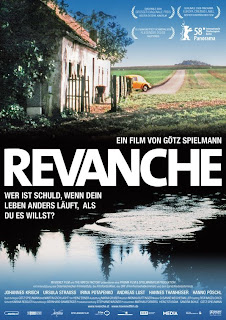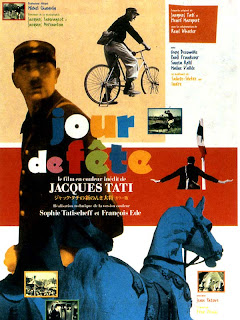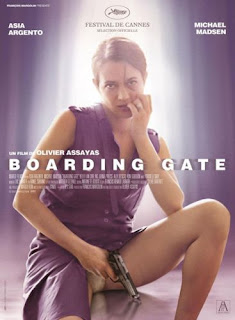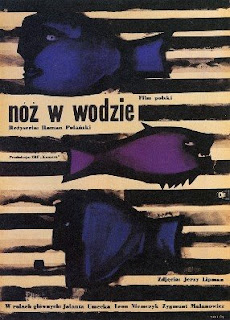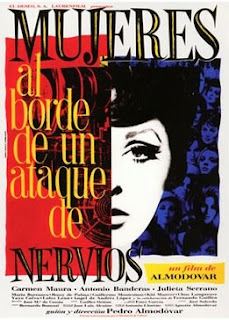DVD: Stranger Than Paradise (Jarmusch, 1984)
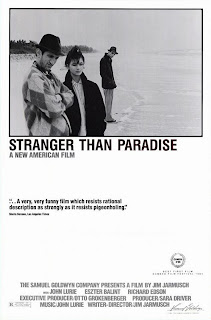 A very strange film, it is understandable that this is a cult classic for its nostalgia and views on youth and freedom. The film works because of low aspirations. The film is composed completely of long, single shot scenes that are intercut but 3-5 seconds of black. The prolonged, black shot transitions took a bit of getting use to, and I initially wondered what the point of them was. It did give the film an episodic feeling that is similar to that which is present in most of Jarmusch’s other films (especially Night On Earth and Coffee and Cigarettes). The three characters in this film are standing still in life. Willie and Eddie spend most of their days doing absolutely nothing. The high points seems to be when they play a game of cards or when they power on the television set. When Willie’s cousin, Eva, comes to visit him, it is truly painful watching her being forced to participate in Willie’s daily routine. Eva eventually moves to Cleveland to live with her aunt, and, while she is slightly more active than Willie and Eddie, she still seems to be doing nothing with her life. The three characters eventually go on a road trip together, and despite their trans-America journey, still seem to be motionless. It was depressing to watch these characters willingly do nothing with their lives. There was not an original thought to be found in any of them, and they seemed content with that. The film is compelling, though, and pretty funny, too.
A very strange film, it is understandable that this is a cult classic for its nostalgia and views on youth and freedom. The film works because of low aspirations. The film is composed completely of long, single shot scenes that are intercut but 3-5 seconds of black. The prolonged, black shot transitions took a bit of getting use to, and I initially wondered what the point of them was. It did give the film an episodic feeling that is similar to that which is present in most of Jarmusch’s other films (especially Night On Earth and Coffee and Cigarettes). The three characters in this film are standing still in life. Willie and Eddie spend most of their days doing absolutely nothing. The high points seems to be when they play a game of cards or when they power on the television set. When Willie’s cousin, Eva, comes to visit him, it is truly painful watching her being forced to participate in Willie’s daily routine. Eva eventually moves to Cleveland to live with her aunt, and, while she is slightly more active than Willie and Eddie, she still seems to be doing nothing with her life. The three characters eventually go on a road trip together, and despite their trans-America journey, still seem to be motionless. It was depressing to watch these characters willingly do nothing with their lives. There was not an original thought to be found in any of them, and they seemed content with that. The film is compelling, though, and pretty funny, too.
The end of the film was very good. Because of a very specific sequence of events, most happening because of the selfishness and idiocy of Willie, the three characters end up isolated from each other, and from anything familiar to them. Willie is on his way to Budapest, Eddie is going who knows where in the car, and Eva is stuck in the hotel, waiting, again, for nothing. These characters are drunk on the idea of freedom; according to the synopsis, they are self-identified hipsters. They are given so much freedom that they don’t know what to do with it, and instead do nothing. The theme of immigration is everywhere in the film. Eva immigrated to the US, and then she, Willie, and Eddie immigrate to Florida, ‘paradise.’ The idea of escape for something new, something more appealing than reality is their downfall, and their naivete finally isolates them. The irony of the last scene is both funny and devastating. A great way to end the film.
DVD: Stranger Than Paradise (Jarmusch, 1984) Read More »

